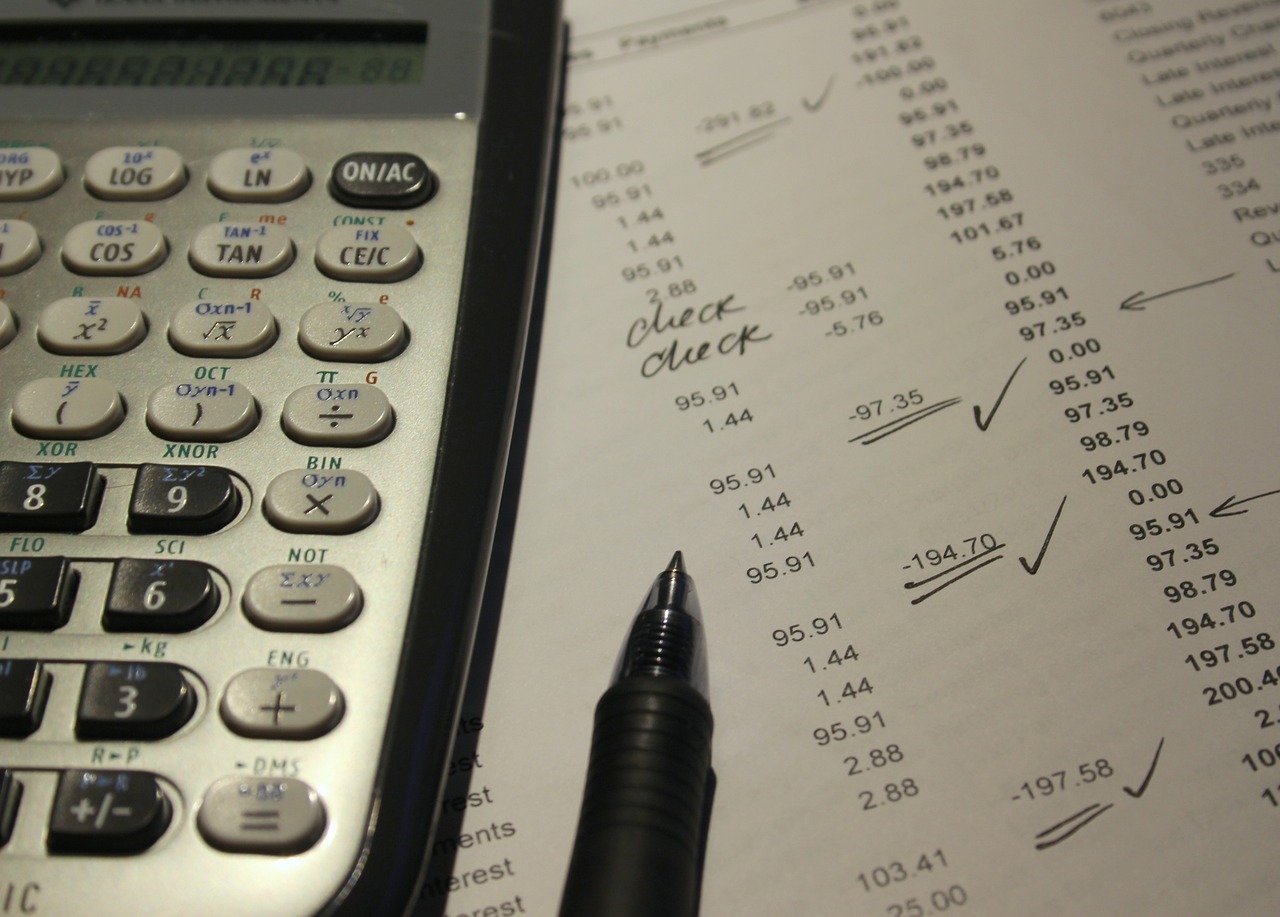If you’ve been involved in a car wreck and find yourself facing medical bills that exceed your accident policy, it’s essential to understand what options are available to you. In such cases, consulting with a lawyer who specializes in personal injury law can provide the guidance and support needed to navigate this complex situation. With their expertise, you can explore potential avenues for collecting compensation to cover your medical expenses. By seeking legal assistance, you can ensure that your rights are protected and increase your chances of receiving the compensation you deserve.

Understanding Car Accident Liability
Car accidents can be both emotionally and physically traumatic experiences. In the aftermath of a car accident, determining who is at fault is crucial in order to pursue legal action and seek compensation. Understanding car accident liability is essential to protect your rights and navigate through legal processes.
Determining Fault in a Car Accident
When it comes to determining fault in a car accident, it is important to consider various factors such as traffic laws, eyewitness testimonies, police reports, and any available evidence. In many cases, fault is assigned based on negligence, which means the failure to exercise reasonable care. It is crucial to gather as much evidence as possible to support your claim and establish liability.
Types of Car Accident Liability
Car accident liability can be divided into different categories, including driver negligence, product liability, and government liability. Driver negligence occurs when a driver fails to uphold their duty of care on the road, such as by driving under the influence, texting while driving, or disregarding traffic signals. Product liability refers to accidents caused by defective car parts, while government liability may apply when poor road conditions contribute to the accident. Determining the exact type of liability is crucial in order to pursue the appropriate legal action.
Negligence and Car Accidents
Negligence plays a significant role in car accident liability cases. In order to prove negligence, certain elements must be established: duty of care, breach of duty, causation, and damages. Duty of care means that all drivers have the responsibility to prioritize the safety of others on the road. Breach of duty occurs when a driver fails to meet this standard of care. Causation refers to the direct link between the driver’s negligence and the accident, while damages are the injuries or losses suffered as a result. Understanding these elements is essential when determining fault in a car accident.
Insurance Coverage for Car Accidents
Car insurance is a critical aspect of protecting yourself in the event of a car accident. Understanding different insurance policies and coverage options can save you from financial distress and provide peace of mind.
Understanding Car Insurance Policies
Car insurance policies typically include several types of coverage. These may include liability coverage, which helps pay for damages caused to others in an accident you are at fault for, and collision coverage, which covers damages to your own vehicle in the event of an accident. Comprehensive coverage is also available to cover damages resulting from situations other than a collision, such as theft or vandalism. Familiarizing yourself with the specifics of your insurance policy will help you understand what will be covered in the event of a car accident.
Minimum Insurance Requirements
Different states have different minimum insurance requirements for drivers. Familiarize yourself with the minimum coverage required in your state to ensure you are adequately protected. Failing to meet these requirements may result in serious legal consequences if you are involved in a car accident.
Optional Coverage
In addition to the minimum required coverage, there are also optional coverage options available. These may include uninsured/underinsured motorist coverage, which protects you if you are involved in an accident with a driver who does not have insurance or has insufficient coverage. Other optional coverages may include medical payments coverage, rental car coverage, and roadside assistance. Carefully consider these options to determine if they are necessary for your individual circumstances.
Medical Bills and Compensation
Car accidents often result in physical injuries that require medical attention. Understanding how to recover medical expenses and seek compensation for your injuries is crucial in order to alleviate financial burden.
Recovering Medical Expenses
If you are injured in a car accident, it is important to seek medical attention immediately. Prompt medical treatment not only ensures your well-being but also creates a documented record of your injuries. It is essential to keep track of all medical bills, prescription costs, and any related expenses. These documented medical expenses will play a significant role in seeking compensation for your injuries.
Medical Payments Coverage
Medical payments coverage, also known as MedPay, is an optional coverage available in car insurance policies. This coverage pays for medical expenses for you and your passengers, regardless of who is at fault for the accident. It can be a valuable asset in covering medical costs and should be considered when choosing your insurance coverage.
Health Insurance and Car Accidents
Aside from car insurance, health insurance can also play a part in covering your medical bills after a car accident. Depending on your health insurance policy, it may cover a portion or all of your medical expenses related to the accident. It is important to coordinate with both your car insurance and health insurance providers to ensure you receive the maximum coverage for your medical bills.
The Role of a Personal Injury Lawyer
Navigating the legal complexities of a car accident case can be overwhelming, especially while dealing with injuries and recovery. Engaging the services of a personal injury lawyer can greatly assist you in pursuing a successful legal claim.
Consulting with an Attorney
Consulting with a personal injury lawyer after a car accident is highly recommended. A professional attorney specializing in personal injury cases will provide you with expert advice and ensure your rights are protected throughout the legal process. Many personal injury lawyers offer free initial consultations, allowing you to discuss the details of your case without any financial commitment.
Evidence Gathering and Investigation
One of the crucial roles a personal injury lawyer plays is gathering evidence and conducting a thorough investigation into the accident. This includes collecting police reports, obtaining witness statements, analyzing medical records, and reviewing any available surveillance footage. A skilled attorney will utilize this evidence to build a strong case on your behalf.
Negotiating with Insurance Companies
Insurance companies often attempt to settle car accident claims for the lowest possible amount. Having a personal injury lawyer on your side ensures that your rights are protected during negotiations. Experienced attorneys have the knowledge and expertise to handle insurance companies and fight for the compensation you deserve. If a fair settlement cannot be reached, an attorney will guide you through the process of filing a lawsuit and representing you in court.

Steps to Take After a Car Accident
Knowing the necessary steps to take immediately after a car accident can greatly impact the outcome of your case. By following these steps, you can protect your rights and gather important information that will aid in the claims process.
Seek Medical Attention
The first and most important step after a car accident is to seek immediate medical attention, even if you do not have any obvious injuries. Some injuries may not be apparent right away, and a medical professional will be able to assess your condition and provide necessary treatment. Additionally, seeking medical attention creates a record of your injuries, which will be important for any insurance claims or legal proceedings.
Report the Accident
Following a car accident, it is crucial to report the incident to the appropriate authorities. This may include contacting the police to file an accident report. The police report will document details of the accident, including any injuries sustained and the identities of all parties involved. Reporting the accident promptly ensures that there is an official record of the incident.
Collect Evidence
Gathering evidence at the accident scene is vital to support your claim and establish fault. Take photos or videos of the scene, including damages to all vehicles involved, any visible injuries, and road conditions. Collect contact information from all parties involved, including their names, phone numbers, addresses, and insurance information. Eyewitness testimonies can also be valuable in determining fault, so be sure to obtain their contact information as well.
Calculating Damages in a Car Accident Case
When seeking compensation for a car accident, it is important to understand the different types of damages that can be claimed. Calculating damages accurately ensures that you are adequately compensated for your losses.
Economic Damages
Economic damages refer to the tangible financial losses incurred as a result of a car accident. This may include medical expenses, lost wages, property damage, and any other out-of-pocket expenses related to the accident. It is important to keep detailed records of these expenses in order to accurately calculate economic damages for your claim.
Non-Economic Damages
Non-economic damages are the intangible losses suffered due to a car accident. These may include pain and suffering, emotional distress, loss of enjoyment of life, and loss of consortium. Calculating non-economic damages can be more challenging, as they do not have a specific monetary value. An experienced personal injury lawyer can help you determine a fair and reasonable amount based on the specific circumstances of your case.
Punitive Damages
In some cases, punitive damages may be awarded if the at-fault party’s actions were particularly egregious or reckless. Punitive damages are intended to punish the responsible party and deter similar behavior in the future. However, punitive damages are not typically available in every car accident case and are subject to specific legal requirements.
Challenging an Insurance Denial
Insurance companies may sometimes deny claims, leaving you frustrated and unsure of your options. Challenging an insurance denial requires a thorough understanding of the denial letter, as well as strong evidence to support your claim.
Reviewing the Denial Letter
When your insurance claim is denied, the insurance company will provide you with a denial letter explaining the reasons for the denial. It is crucial to carefully review this letter, as it will outline the specific grounds on which your claim was denied. Understanding the reasons for denial will help you determine if there are any factual or legal errors that can be challenged.
Rebutting the Denial
After reviewing the denial letter, gather all the necessary evidence to rebut the insurance company’s reasons for denial. This may include additional medical records, expert opinions, witness statements, or any other relevant documentation that supports your claim. A personal injury lawyer can assist you in compiling a strong rebuttal to challenge the denial.
Appealing the Decision
If your claim is denied, you have the right to appeal the decision. Insurance companies typically have an internal appeals process that allows you to present your case to a higher authority within the company. It is important to gather all the necessary information and documentation to support your appeal and present a compelling argument for the reversal of the denial. Consulting with a personal injury lawyer can greatly improve your chances of a successful appeal.
Filing a Lawsuit for Compensation
If negotiations with the insurance company do not result in a fair settlement, filing a lawsuit may be necessary to pursue the compensation you deserve. Understanding the process and the legal requirements for filing a lawsuit is crucial when considering this option.
Statute of Limitations
Every state has a statute of limitations, which is the time frame within which legal action must be initiated. It is important to be aware of the statute of limitations in your state and adhere to the specified timeline. Failing to file a lawsuit within the statute of limitations can result in the loss of your right to seek compensation.
Court Process for Car Accident Cases
Once a lawsuit is filed, the court process begins. This typically involves several stages, including discovery, where both parties exchange evidence and information, and depositions, where witnesses provide sworn testimony. The case may proceed to negotiations or mediation, where attempts are made to settle the case outside of court. If a settlement cannot be reached, the case will proceed to trial, where a judge or jury will determine liability and damages.
Settlement vs. Trial
During the legal process, your personal injury lawyer will work to negotiate a fair settlement with the opposing party or their insurance company. If a fair settlement offer is reached that adequately compensates you for your injuries and losses, it may be in your best interest to accept. However, if a reasonable settlement cannot be reached, your case will proceed to trial. Your attorney will guide you through the decision-making process and advise you on the best course of action.

Factors Affecting Compensation
The amount of compensation you may receive for a car accident case is influenced by several factors. Understanding these factors can help you estimate the potential compensation you may be entitled to.
Severity of Injuries
The severity of your injuries and the impact they have on your daily life are significant factors in determining compensation. More severe injuries that require extensive medical treatment, result in long-term disabilities, or significantly affect your quality of life generally result in higher compensation.
Impact on Daily Life
A car accident can have a profound impact on your daily life, including your ability to work, participate in activities you once enjoyed, and maintain relationships. Compensation may take into account the emotional and psychological toll the accident has had on your overall well-being.
Lost Wages and Future Earning Capacity
If your injuries have caused you to miss work or have resulted in a decreased ability to perform your job duties, you may be entitled to compensation for lost wages. Additionally, if your injuries are expected to have a long-term impact on your future earning capacity, you may be eligible for compensation to account for these future financial losses.
Choosing the Right Car Accident Lawyer
Selecting the right personal injury lawyer to represent you in your car accident case is critical to achieving a favorable outcome. Consider the following factors when choosing a lawyer.
Experience and Track Record
Look for a lawyer who specializes in personal injury law and has a proven track record of success in car accident cases. An experienced attorney will have the expertise and knowledge necessary to navigate the legal process and maximize your chances for a favorable outcome.
Personalized Attention
Choose a lawyer who will provide personal attention to your case and prioritize your needs. A good attorney will take the time to understand the unique circumstances of your case and develop a strategy tailored to your specific needs and goals.
Fee Structure and Costs
Discuss the attorney’s fee structure and costs associated with your case. Most personal injury lawyers work on a contingency fee basis, meaning they only collect fees if they successfully recover compensation for you. Understanding the financial arrangement upfront will help you make an informed decision.
Frequently Asked Questions (FAQ)
-
What can a lawyer collect if the medical bills are more than the accident policy on a car wreck? A lawyer can help you seek compensation for medical bills from the at-fault party’s insurance policy and explore other potential sources of compensation, such as health insurance or the at-fault party’s personal assets.
-
How long do I have to file a lawsuit after a car accident? The time frame to file a lawsuit, known as the statute of limitations, varies by state. It is important to consult with a personal injury lawyer to determine the specific deadline that applies to your case.
-
How much compensation can I expect for my car accident case? The amount of compensation you may receive depends on various factors, including the severity of your injuries, impact on your daily life, and financial losses incurred. Consulting with a personal injury lawyer will provide you with a better understanding of the potential compensation you may be entitled to.
-
Can I handle a car accident claim on my own without a lawyer? While it is possible to handle a car accident claim on your own, having a personal injury lawyer by your side can greatly improve your chances of a successful outcome. An experienced attorney understands the legal complexities involved and can navigate the process on your behalf.
-
How long does it take to settle a car accident claim? The time it takes to settle a car accident claim can vary depending on the specific circumstances of your case. Some cases may be resolved through negotiations within a few months, while others may require litigation and take longer. Working with a personal injury lawyer can help expedite the process and ensure your rights are protected.